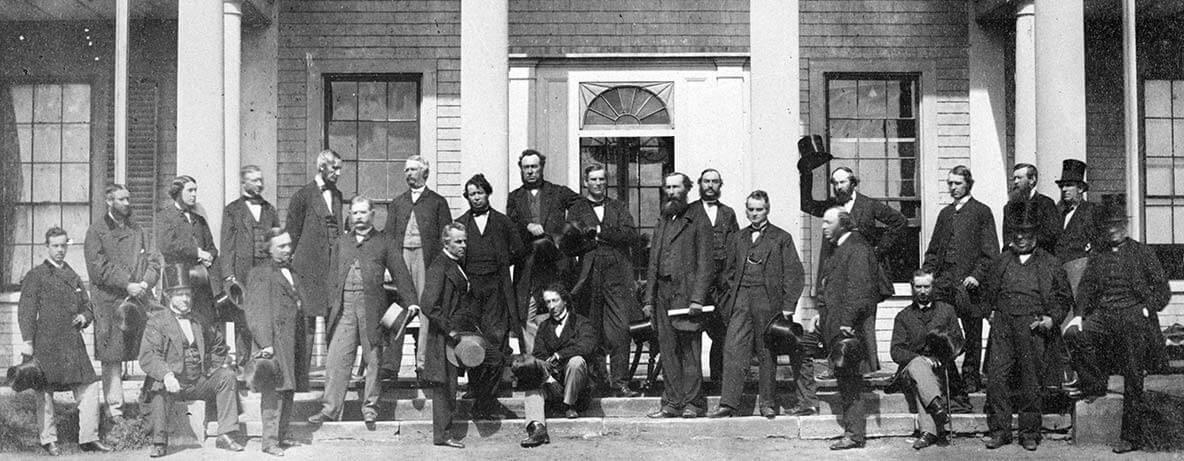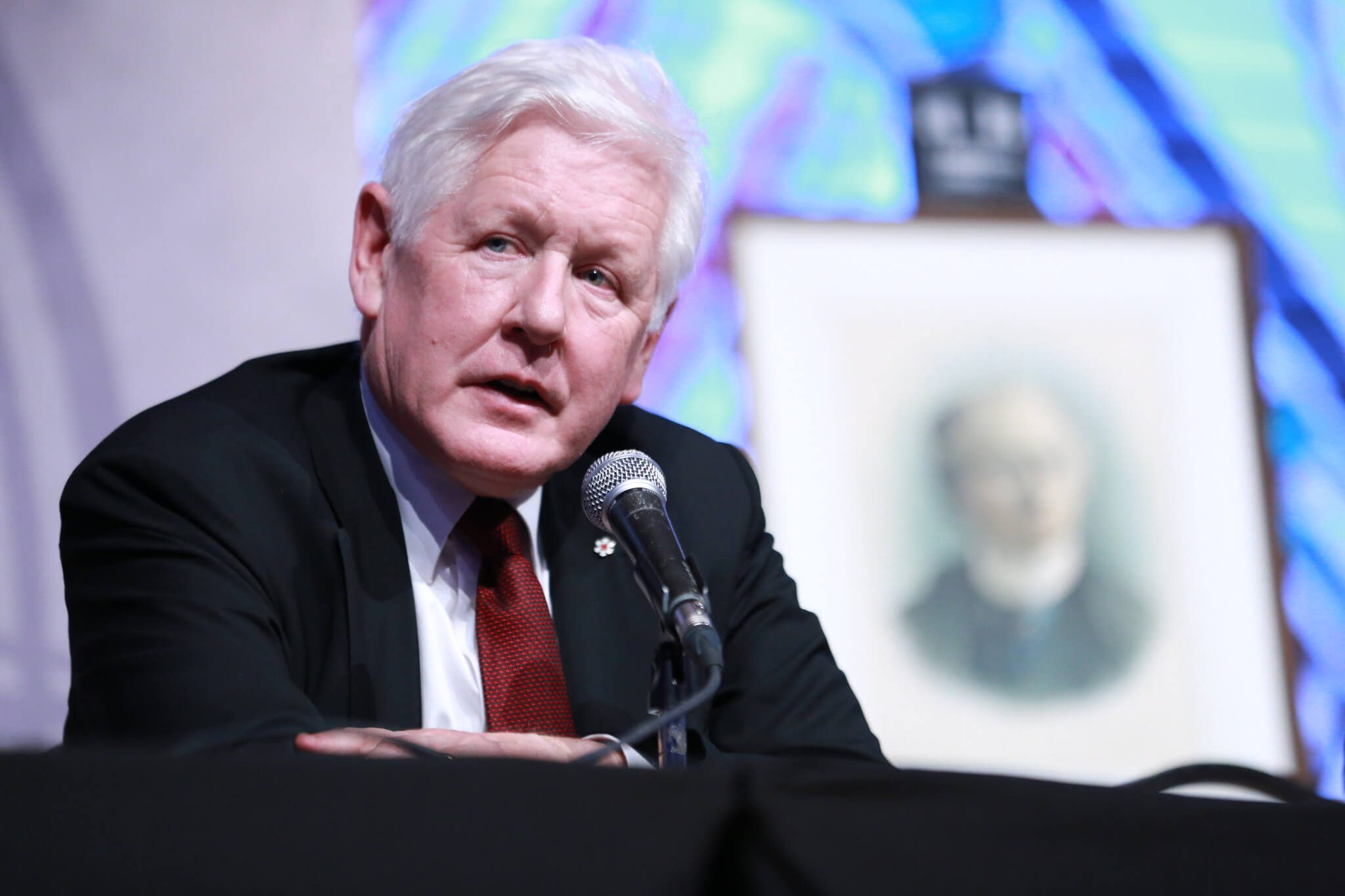[Ed. McGee meditates on the values of accommodation and forbearance required in a country of diverse origins and religious opinions, declaring “the one thing needed for making Canada the happiest of homes, is to rub down all sharp angles, and to remove those asperities which divide our people on questions of origin and religious profession.” A proud representative of the Irish-Canadian community of Montreal, McGee argues that new Canadians owe their patriotism to their chosen country: “our first duty is to the l and where we live and have fixed our homes, and where, while we live, we must find the true sphere of our duties.”]
In reply to the toast of his health, at a dinner given him by his constituents, the eve of the session of 1861, Mr. McGee (after some local observations) said:
The career I have had in Canada led me chiefly into those parts of the country inhabited by men who speak the English language, and using the opportunities which I have had between the time when I ceased to be a newspaper publisher to that of my admission as a member of the Lower Canada bar, I trust I have learned something which may be profitable to me in the position to which you elevated me on trust and in advance. The result of my observations, thus made, is, that there is nothing to be more dreaded in this country than feuds arising from exaggerated feelings of religion and nationality.
On the other hand, the one thing needed for making Canada the happiest of homes, is to rub down all sharp angles, and to remove those asperities which divide our people on questions of origin and religious profession. The man who says this cannot be done consistently with any set of principles founded on the charity of the Gospel or on the right use of human reason, is a blockhead, as every bigot is – while under the influence of his bigotry he sees no further than his nose. For a man who has grown to years of discretion – though some never do come to those years – who has not become wedded to one idea, who, like Coleridge, is as ready to regulate his conduct as to set his watch when the parish clock declares it wrong; who is ready to be taught by high as well as by low, and to receive any stamp of truth – I may say that such a man will come to this conclusion: that there are in all origins men good, bad and indifferent; yet for my own part, my experience is that in all classes the good predominate.
I believe that there have come out of Ireland, noble as she is, those whom she would not recognise as her children; and so with other countries celebrated for the noble characteristics of their population as a whole. In Canada, with men of all origins and all kinds of culture, if we do not bear and forbear, if we do not get rid of old quarrels, but on the contrary make fresh ones, whereas we ought to have lost sign of the old when we lost sight of the capes and headlands of the old country – if we will carefully convey across the Atlantic half-extinguished embers of strife in order that we may by them light up the flames of our inflammable forests – if each neighbour will try not only to nurse up old animosities, but to invent new grounds of hostility to his neighbour – then gentlemen, we shall return to what Hobbes considered the state of Nature – I mean a state of war.
In society, we must sacrifice something, as we do when we go in through a crowd, and not only must we yield to old age, to the fairer and better sex and to that youth which, in its weakness, is entitled to some of the respect which we accord to age; but we must sometimes make way for men like ourselves, though we would prove by the most faultless syllogism our right to push them from the path.
In his great speech respecting the Unitarians, Edmund Burke declared that he did not govern himself by abstractions or universals, and he maintained in that same argument (I think) that what is not possible is not desirable – that the possible best is the absolute best – the best for the generation, the best for the man, since the shortness of life makes it impossible for him to achieve all that he could wish. I believe the possible best for us is peace and good-will.
With this belief, I did my part to heal up those feuds which prevailed in Montreal and westward before and at the election of 1857; I felt that some one must condone the past, and I determined, so far as I could be supposed to represent your principles, to lead the way; I tried to allay irritated feeling, and I hope not altogether without success.
We have a country which, being the land of our choice, should also have our first consideration. I know, and you know, that I can never cease to regard with an affection which amounts almost to idolatry the land where I spent my best, my first years; where I obtained the partner of my life, and where my first born saw the light. I cannot but regard that land even with increased love because she has not been prosperous.
Yet I hold we have no right to intrude our Irish patriotism on this soil; for our first duty is to the land where we live and have fixed our homes, and where, while we live, we must find the true sphere of our duties. While always ready therefore to say the right word, and to do the right act for the land of my forefathers, I am bound above all to the land where I reside; and especially am I bound to put down, so far as one humble layman can, the insensate spread of a strife which can only tend to prolong our period of Provincialism and make the country an undesirable home for those who would otherwise willingly cast in their lost among us.
We have acres enough, powers mechanical and powers natural; and sources of credit enough to make out of this province a great nation, and, though I wish to commit no one to my opinion, I trust that it will not only be so in itself, but will one day form part of a greater British North American State, existing under the sanction, and in perpetual alliance with the Empire, under which it had its rise and growth.



